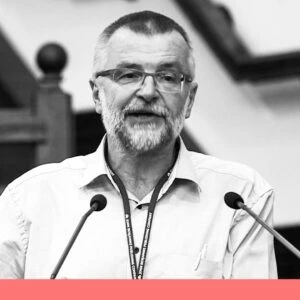Keynote: Language spread and language competition in the 21st century: The digital factor
Contrary to initial fears, the World Wide Web has not become an English-language monoculture. What has emerged instead is a selective and competitive English-dominated multilingualism. The first part of the presentation will survey the economic, cultural and technological factors shaping online multilingualism, which generally favours languages that are spoken by large numbers of people in economically prosperous countries, but occasionally also opens up opportunities for intelligent language activism promoting minority languages. The second part focusses on the role that language technologies, from simple spell checkers to recent breakthroughs in AI-based text generation, have come to play in language standardisation. On the one hand, technology promotes further homogenisation and standardisation, though not necessarily along the lines of traditional norms of educated usage. On the other hand, it may also result in more diversification, giving public visibility to selected nonstandard varieties, especially if they happen to be associated with pop-cultural or subcultural trends. For English, this standardisation paradox is illustrated by the fact that Standard British English, traditionally considered one of the two global reference standards, is being superseded by Standard American English online (and to some extent even offline), whereas varieties such as African American English, Jamaican Creole or Nigerian Pidgin English seem to be doing comparatively well in the digital sphere. The dangers of potential racial, ethnic and gender biases in machine-generated language output have rightly been emphasised in recent literature. The conclusion raises the question whether non-dominant national standards of pluricentric languages (e.g. British and New Zealand English, Austrian and Swiss German) and “small” national languages are also potentially at risk of digital suppression.
About the speaker:
Christian Mair was Assistant and, subsequently, Associate Professor in the English Department of the University of Innsbruck, Austria, before being appointed to a Chair in English Linguistics at the University of Freiburg in Germany in 1990. His research has focussed on the corpus-based description of Modern English grammar and on variability and change in Standard Englishes world-wide. Mair’s current research focusses on the role of global English in a multilingual world, on multilingual and nonstandard language practices in computer-mediated communication, and on the sociolinguistics of diaspora and migration, where he is advocating the use of corpora and digital tools to complement existing approaches. Throughout his career, he has actively encouraged cooperation between linguistics and literary and cultural studies within a broadly conceived “English Studies” framework. He has published more than ten monographs and edited collections (among them Twentieth-Century English: History, Variation and Standardization, 2006 and Global English für eine Welt mit vielen Sprachen, 2023) and more than 150 book chapters and journal articles. From 2006 to 2012, he was a member of the Wissenschaftsrat, an advisory body to the German Federal Government and state governments. From 2011 to 2014 he served as President of ISLE, the International Society for the Linguistics of English.
